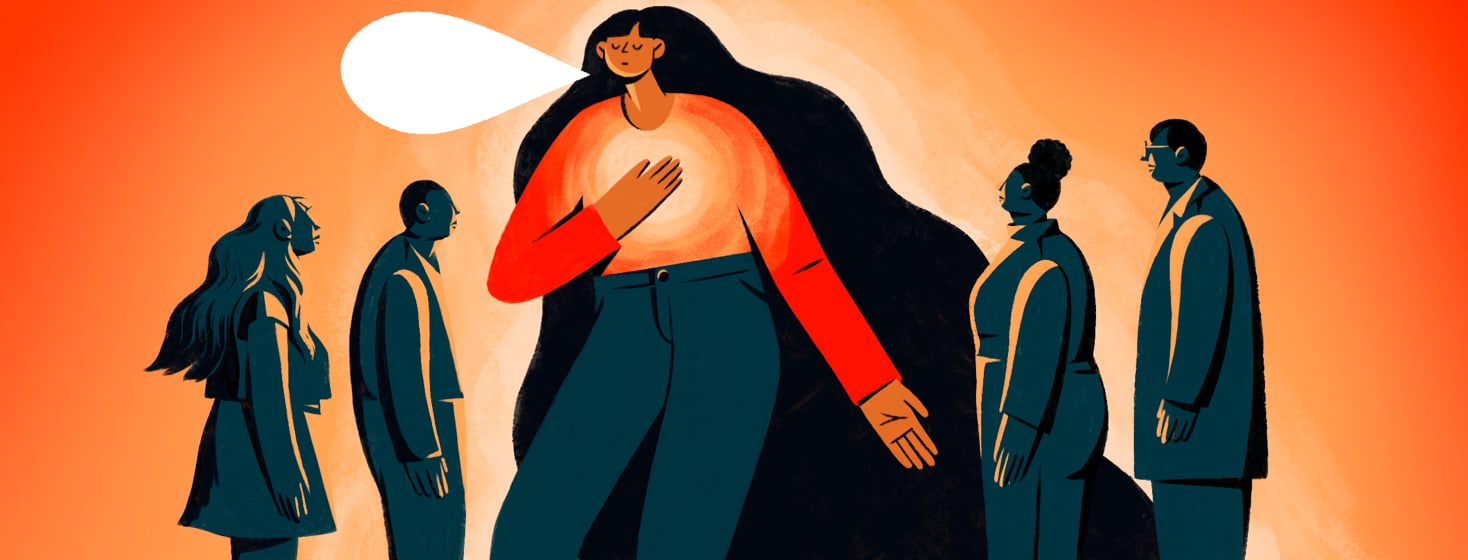Becoming Your Own Advocate
Navigating a new diagnosis can be overwhelming and confusing, not to mention time-consuming and occasionally frustrating. However, this is a vital step, especially after a new diagnosis.
Don’t be afraid to ask questions if you don’t understand. In today’s complex world of medicine and treatment options, it’s so important that we take on an active role as well as the necessary steps to manage our health for ourselves.
The importance of self-advocacy
Sometimes, we often feel like only a number on a file while we are waiting for a callback or for results from a test, and the waiting feels like an eternity. I think it’s perfectly fine to reach out to your provider if you feel like you haven’t received an update or heard from anyone in a timely manner. A health journey requires good communication and sometimes it’s about being assertive in your care.
Healthcare can seem impersonal, and we may often feel like we are not being seen or heard and maybe even lost. I often feel like I don’t want to bother my doctors, but they are in this career field to help us, and if we need them, we should reach out to them.
If we don’t understand something, we should ask for clarity. Being our own advocate ensures that our care is meeting our needs and allows us to trust the care and treatment that we are receiving fully.
Understanding the diagnosis and treatment
They say that knowledge is power, and I truly believe that it is. However, when I was first diagnosed with stage IV non-small cell lung cancer, I had no clue what to ask, and the only thing on my mind was wondering if I was going to live and keep my hair. I was afraid to ask those questions because I was mostly afraid of the answer.
My doctor went through the possible treatment options with me prior to my biomarker testing and mentioned which ones would allow me to keep my hair and the ones that would not. All of these names of medications, acronyms, and just the lingo in general were overwhelming.
I turned to Google searches to better understand, but that wasn’t the best thing to do. I should have asked the doctor questions and also found peer-reviewed medical journals and other credible sources for information. Keeping a list of questions for your doctor is also helpful. Our doctors are there for us, and no question is dumb or insignificant when it comes to understanding our diagnosis and treatment options.
Start a Forum
Finding your support system
I found a couple of support groups online that were very helpful at the beginning of my lung cancer journey. These were real people like me walking the same path as me. They were living and thriving with this disease and making the best out of every single day. This was so encouraging for me.
I was also able to find support from family and friends and even in-person support groups with the local cancer center. Just knowing that I was not alone in this journey was so beneficial.
Also, being able to have that strong support system that I trust when I am feeling overwhelmed has been helpful as well. Ultimately, having someone to talk to who understands is very helpful.
Overcoming the challenges
The beginning of a cancer journey can be really trying. My medication was denied by insurance.
My life-saving oral chemotherapy that my doctor said I needed wasn’t being approved by non-medical people. The insurance company didn’t have the update that my Tagrisso had actually been approved by the FDA as a first-line therapy just one month prior. I nor my doctor took no for an answer.
We wrote letters and provided an article from the manufacturer that proved the new approval by the FDA and finally got it approved. We can’t give up on ourselves.
There are so many intricate parts of the journey, but if we keep pressing and trying to overcome those obstacles, we can find greater satisfaction with our care as well as empowerment in knowing that we are doing everything in our power to maintain the care that is not only necessary but also the care that you deserve.

Join the conversation